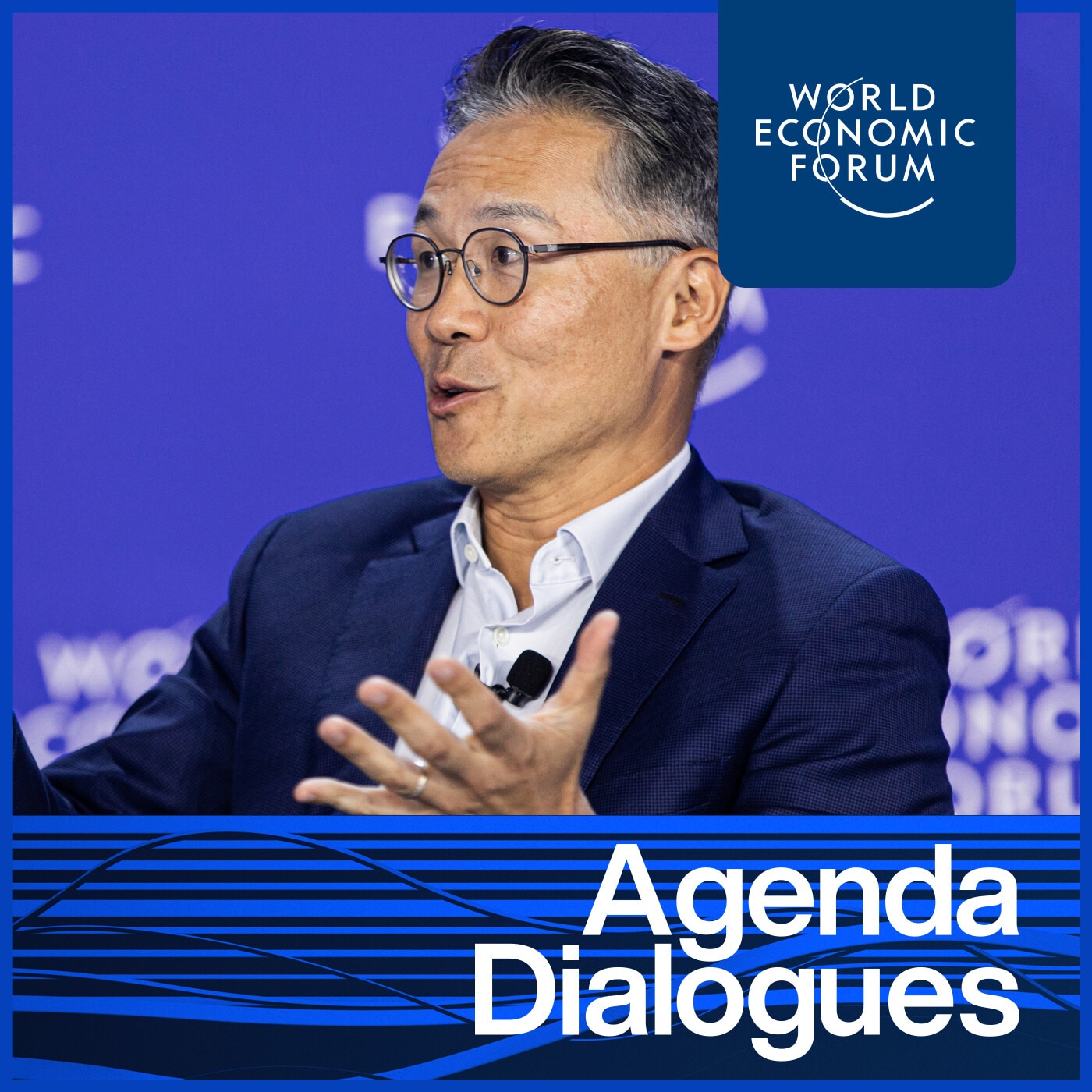Diplomats and designers discuss: tackling the growing gap between rich and poor

The consequences of economic inequality are increasingly being seen in the political landscape
Diplomacy and design are both science and art, technical professions that adhere to the rules of politics and physics but celebrate charisma and creativity. The two disciplines are rarely in conversation, lacking common language and institutions. Nonetheless, diplomats and designers increasingly take up the same questions and challenges from climate change to terrorism.
Yes, the global middle class has grown dramatically over the last two decades - but so too has income inequality, and in cities more than anywhere else. When Thomas Piketty enlisted Jane Austen’s rural estates to explain economic inequality, he just as well could have used today’s London of Martin Amis or Ian Sinclair. Even in wealthy cities like San Francisco and Hong Kong, housing affordability has reached a crisis point.
Angel Gurría is Secretary-General of the OECD and former Secretary of Finance of Mexico. Under his guidance, inclusive growth and economic inequality have become central issues of the OECD’s work.
As chairperson of New London Architecture, Peter Murray has played a leading role in both explaining and enabling conversation about built design in urban spaces. He serves on as a one of Mayor Sadiq Khan’s Design Advocates, with a charge includes an explicit focus on affordable housing.
Together we talked about multilateralism and populism, urban junctions and pre-fab houses:
Ian Klaus: The OECD was founded in part under the logic that what happens in one country affects others, and we’ve come to understand inequality as a macroeconomic or structural issue. But of course there are local dynamics at play as well, zoning laws, access to transportation.
Secretary-General Angel Gurría: Across OECD countries inequality has risen. Today the ten percent poorest, their income will fit ten times into the income of the ten percent richest. So what? One generation ago it was seven times. In terms of revenue, the income flow, one generation is moving very fast in the wrong direction. Whatever is happening in cities is in the context nationally and internationally of a very dramatic increase in inequality. Inequality in metropolitan areas is higher than the average. And then, inequality in big cities is even higher.
Policy solutions really need to be at national, regional and municipal levels, but also across policy sectors, in terms of health, education, labour activation policies. You would be surprised at how many of these solutions can be applied across major cities.
Last year, for example, we saw the leaders of Paris, Seoul, Mexico City and London - they’re pretty far away, they’re all over the place, on different continents – took concrete steps to improve air quality. They identified that they had a common problem, which was highly polluting vehicles. So they got a new environmental scoring system for vehicles that went beyond EU standards at the time, but eventually it gets picked up and becomes the new more stringent standard. And we have the OECD Champion Mayors for Inclusive Growth, which was created with precisely this principle in mind: cities want to learn from each other! We’ve had the Mayor of Athens, Greece, asking for advice on an initiative undertaken in Curridabat, Costa Rica!
IK: Sharing as a way to find solutions that move from local site to local site in response to sometimes macro challenges, does that play out in the design world as described?
Peter Murray: Absolutely, yes. From London’s point of view, we’ve always seen ourselves as an open city. We’ve been a trading city for a thousand years, so suddenly Brexit was a real shock. Mayor Sadiq Khan’s key campaigns at the moment is London is open. We’re working on delivering a London housing expo in 2022, and we’re working with colleagues in Malmo, in Sweden, Vienna, Melbourne, to exchange ideas about how we deal with key issues about housing regeneration.
How do you regenerate large areas of public housing built in the post-war period? We can look at Paris. There are French examples of regeneration which we would like to emulate in London. In Germany, Berlin particularly, Baugruppen created co-operative housing. Pre-fabrication or modern methods of construction, Japanese cities do that so well, and we would love to share with them. We haven’t had car-free days in London. Yet! So we’re sharing with Paris and other cities around the world to try and convince Mayor Sadiq Khan to organize one in September this year.
IK: I’ve had a look at the Seoul Implementation Agenda for Inclusive Growth, and you think about the work of the recent Pritzker Prize winner, Balkrishna Doshi - participatory processes are referenced quite a bit when discussing inclusive growth, urban planning or governance these days. That’s happening parallel to a moment of populism, which is a different sort of bottom-up campaign. How do we think about the politics around inequality and the right way to build the necessary coalitions?
AG: The politics is explosive. Inequality is ethically wrong. It is morally wrong. It is politically very dangerous. Inequality, when it goes to extremes and it now is there, can be an obstacle to growth. Across the OECD, the fragmentation of the economic results and the fact that so many people have been left behind has given to fragmentation of the social ties, which clearly is being manifested in the political results. Everybody is complaining about the lack of leadership, but even some of the same leaders who seemed quite determined and enlightened in their past mandates, given the backlash against globalization, they went to the polls again wanting to get another mandate, and in the case of several European countries it took seven months to form a government.
The greatest problem we have today is that people want to vote against the established order, as they feel that this system is not solving “my” individual problem. Sixty percent of the very young men and women whose future was at stake with Brexit did not show up to the polls the day of the vote. And therefore we lost the vote - and I say we because the OECD was campaigning very hard against Brexit. And we lost it because the people whose future was at stake didn’t show up on the day of the vote.
PM: I think that’s very interesting. When you look at issues, particularly in London, how people voted. As a city as a whole, of course, London voted to remain. But there are poorer areas, generally on the periphery, places like Barking and Dagenham, in which a majority of people there voted to leave because they believed the rhetoric that they would somehow be better off.
We have a vibrant economy in London itself. It’s not stagnant. But also we haven’t delivered some of the key services that these people require. Housing is a key issue. We have in London, as many other cities do, hugely unaffordable housing in central areas. The mayor has a target - 66,000 homes a year to be built in the London area. Now to do that without creating tensions between different communities is going to be very hard. Do you define NIMBY’s as a part of this populist movement? We don’t have, like San Francisco, a powerful YIMBY movement, but it is beginning to grow.
I’m very interested in your reference, Ian, to Doshi. Doshi is a very interesting architect, very influenced by Le Corbusier, who was criticized for his urban propositions. But actually the Modernist movement was always very interested in the idea that architecture was a social mechanism, a social art. Not just making things pretty. And throughout my career, I’ve always been very interested in the ways communities work together to deliver change. In Chile, Alejandro Arevena has designed a House where you deliver the basic homes but they can extend them very easily. It’s self built. At a price they can afford. And at a time scale that suits their lifestyle.
IK: Of course the modernist exercise came under great criticism but sometimes I feel like it’s creeping back. And as it came under criticism, the trends in development tended towards policy advice, financial support, attention to governance, that an organization like the OECD has long done. I wonder where these spaces meet. Peter, you give examples of localized solutions, something like lean urbanism, but the challenges we’re facing require people who can work at huge scales and globally, a little like the OECD.
PM: In Britain at the moment, particularly among younger architects, planners, and associated politicians there is an increased interest in municipal delivery of housing. Something that, ever since Mrs Thatcher, has been off the agenda in Britain. The idea of public housing, not quite so monocultural as happened in the post-war period, is on the way back.
AG: You always have this problem of the three levels of the government, national, regional and local. And then you have the private sector playing a major role connecting economies. And then you have the mayors. You have a number of rather interesting examples. Small cities, big cities. The mayor of Otsu in Japan, is making the city friendly for the female entrepreneur. Very specific. So they can remain in the workforce after having children. And then you go to a very big city like Dallas. They’re using the procurement processes to support SMEs.
IK: What’s the best thing you’ve read about inclusivity and what meeting over the remainder over 2018 sure we be sure to keep our eye on?
PM: I’m going to go back to a book I read first about four years ago which is called The Gated City, by Ryan Avent who was then the economics correspondent at The Economist. He studied a number of the American metro areas and looked at the impact that higher prices in cities, particularly in places like San Francisco that were becoming playgrounds of the rich, start-ups, younger people, with cost-conscious middle class being pushed out and then moving to other cities.
For me, one of the most important things coming up in the horizon in the next couple of months is a vote in the City of London by the Corporation of London on the future of Bank Junction, which for the last year has had all traffic removed from it. The transformation has been amazing. It has turned a dangerous junction into a great public space. But there is a backlash movement coming along from the black cab drivers who are really offended they can’t drive through it. There will be a couple of meetings where the decision will be made whether to reverse this strategy or continue with it.
AG: Allow me to be a bit of a cheerleader for the OECD. Growing Unequal? 2008. By the OECD. Divided We Stand. 2011. Also by the OECD. Which unfortunately removed the question mark, and confirmed that inequality was actually growing because in 2008 we still did not have the crisis as an element of the measurement, whereas in 2011 we of course had the crisis already starting to make its devastating impact. In 2015, we published In it Together, which suggested that we needed to go after the question of inequality. How do you answer the problem once you’ve diagnosed it, measured it, compared it, benchmarked it, and extracted all the policy lessons?
So we created our inclusive growth initiative. We’re mainstreaming the inclusive growth concept into everything we do. Our flagships All on Board, the Productivity-Inclusiveness Nexus and Bridging the Gap give clear advice to governments on how to address inequalities. We are now working to deliver a Framework for Action on Inclusive Growth that we will release in the next couple of months. The Framework will suggest key steps to undertake to create an enabling environment for inclusive growth.
The OECD Forum, part of the OECD Week, followed by the Ministerial Meeting, which is going to be called “Reshaping Multilateralism.” This multilateralism thing, I tell my colleagues here, is half inspiration, half provocation - we’re all worried about multilateralism. When the question is how do you deal with inequality, how do you deal with issues like trade and investment, how do you deal with climate change, how do you deal with migration, how do you deal with it if not through multilateral tools?
Don't miss any update on this topic
Create a free account and access your personalized content collection with our latest publications and analyses.
License and Republishing
World Economic Forum articles may be republished in accordance with the Creative Commons Attribution-NonCommercial-NoDerivatives 4.0 International Public License, and in accordance with our Terms of Use.
The views expressed in this article are those of the author alone and not the World Economic Forum.
Stay up to date:
Economic Progress
Related topics:
Forum Stories newsletter
Bringing you weekly curated insights and analysis on the global issues that matter.
More on Economic GrowthSee all
Ivan Shkvarun
July 25, 2025






